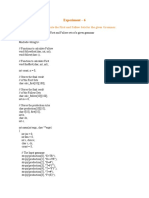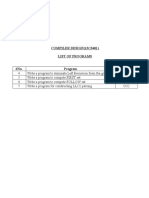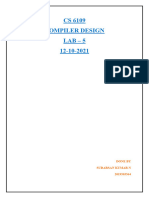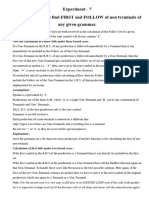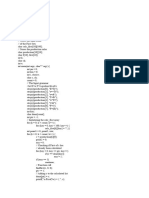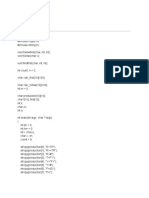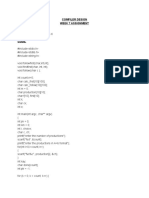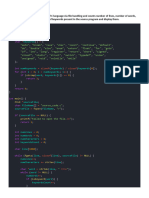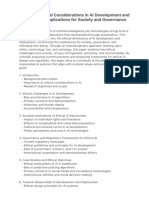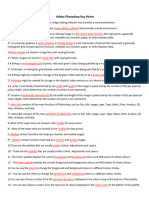0% found this document useful (0 votes)
73 views24 pagesCompiler Design Lab Guide
The document describes several experiments for a compiler design lab including designing a lexical analyzer to recognize patterns in C, testing if an identifier is valid, finding the FIRST and FOLLOW positions for an expression, implementing LL(1) and recursive descent parsers, implementing a symbol table, and identifying if a string belongs to a given grammar.
Uploaded by
dheerajaaaaa40Copyright
© © All Rights Reserved
We take content rights seriously. If you suspect this is your content, claim it here.
Available Formats
Download as PDF, TXT or read online on Scribd
0% found this document useful (0 votes)
73 views24 pagesCompiler Design Lab Guide
The document describes several experiments for a compiler design lab including designing a lexical analyzer to recognize patterns in C, testing if an identifier is valid, finding the FIRST and FOLLOW positions for an expression, implementing LL(1) and recursive descent parsers, implementing a symbol table, and identifying if a string belongs to a given grammar.
Uploaded by
dheerajaaaaa40Copyright
© © All Rights Reserved
We take content rights seriously. If you suspect this is your content, claim it here.
Available Formats
Download as PDF, TXT or read online on Scribd
/ 24




